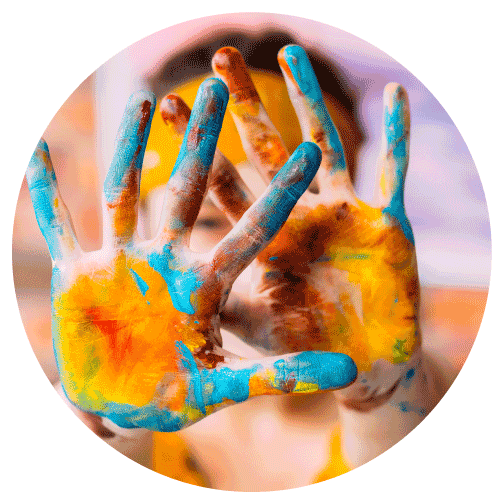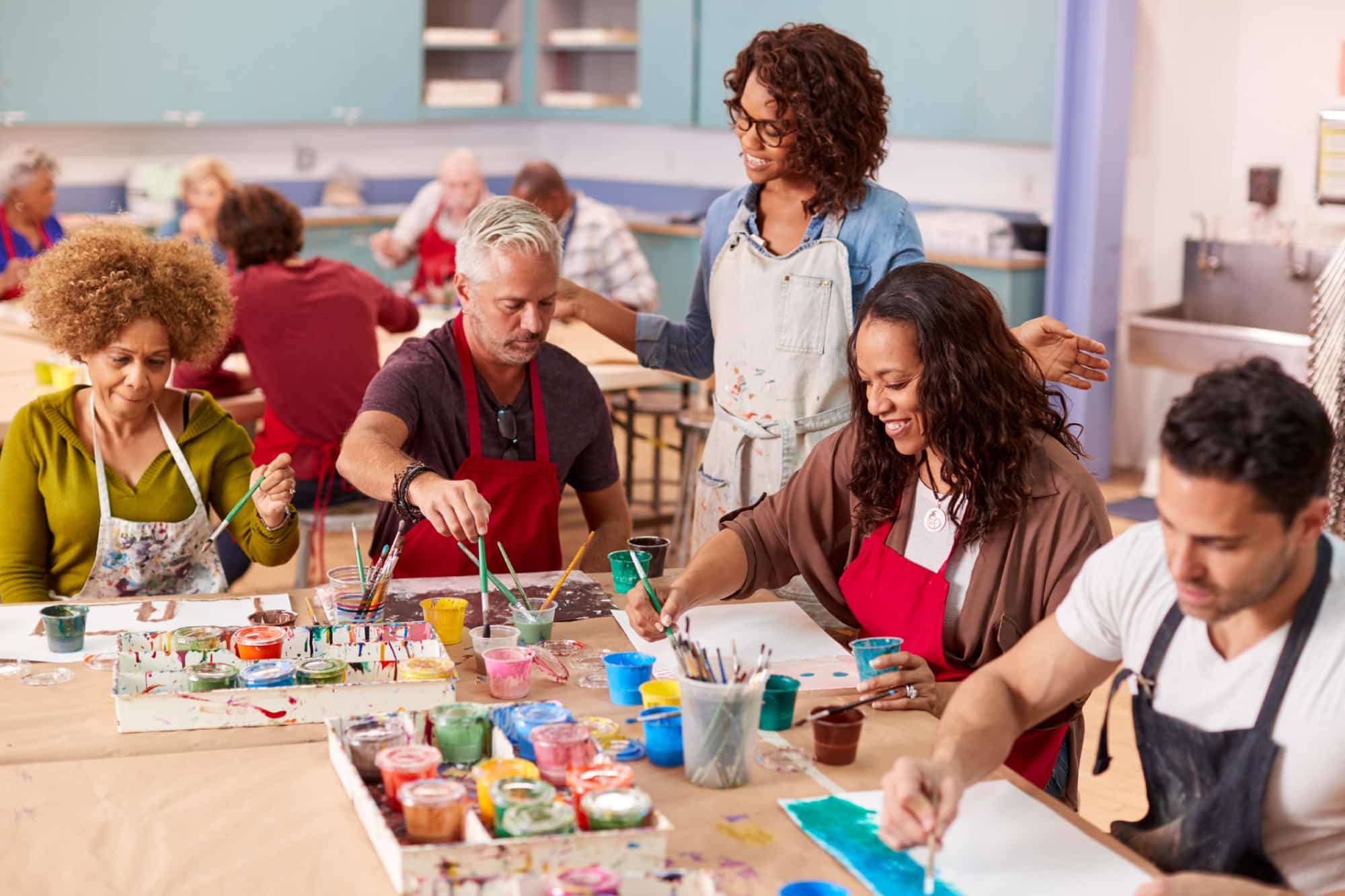By Christa Banister
Mention the word “therapy” and for many people, a very specific image springs to mind. An overstuffed couch. Someone dutifully taking notes. Questions about your childhood. Lots and lots and lots of talking.
Thankfully, therapy can be about much more than talk. For those who may find it challenging to verbally convey certain emotions, thoughts, and life experiences, expressive arts can help. This creative methodology for expressing what can be hard to say has been proven to improve mental, physical, and emotional wellness. Best of all, it doesn’t require any special talent. Anyone can benefit, even those who wouldn’t characterize themselves as particularly artistic.
Survey data released by the American Art Therapy Association in 2017 noted that art displayed in hospitals created a feeling of safety among patients. Additionally, these displays of creativity played a part in improving socialization and had long-range effects of maintaining an identity outside of the hospital.
Anyone can benefit, even those who wouldn’t characterize themselves as particularly artistic.
Along with drawing, painting, or sculpture as a vehicle for the expression of thoughts and emotions, there are a variety of expressive arts that promote healing, stress relief, and positivity.
Whether it’s music therapy (listening to music, playing an instrument, singing, songwriting), creative writing, penning poetry, dance, or drama, each helps with releasing tension and expressing and processing feelings, which boosts someone’s mental and physical health.
How Expressive Arts Therapy Works
“Humans are habitually patternistic, and that’s so the brain can resource energy to the things we have to do to keep ourselves safe,” says Tori Farris, Holistic Counseling Psychology and Trauma Specialist at The Meadows Outpatient Center in Silicon Valley, California. “So, if we don’t have to change up our routine, we probably won’t. What art does is bring a creative outlet to the changing of a routine. If we’re used to waking up, getting ready for work, going to work, doing A-B-C-D to get through the day, all of the sudden when we do art with an instructor or teacher, the brain is being primed to think in infinite new ways. It’s getting into the part of the brain that can be shut down to trauma.”
u0022…art theory helps with the improvement of self-esteem and promoted feelings of hope, acceptance, and encouragement that are vital in recovery.u0022
For example, for those who struggle with substance abuse, a study conducted by the American Public Health Association shows that art theory helps with the improvement of self-esteem and promoted feelings of hope, acceptance, and encouragement that are vital in recovery. By engaging the senses, people were able to step back from the problem in order to gain a more objective perspective in finding strategies for moving forward.
Art and Your Wellbeing

While the roots of expressive arts therapy date back to the 1940s, it has plenty of present-day applications. It’s currently being used during the trauma of 2020 to help ease the anxiety and process the stress of the coronavirus pandemic. And through classes offered by several well-known museums, art therapy programs are helping to improve the mental health of retirees who can’t go outside and enjoy their usual routines. With little more than colored pencils, pens, paper, and a Zoom connection, the creation of drawings before and after the pandemic help ease tension and provide a sense of community, according to a recent New York Times article.
Underscoring the value of expressive arts, Dr. Cathy Malchiodi, an expert on the subject, explores healing the mind with imagination in a season 2 episode of the Beyond Theory podcast (powered by Meadows Behavioral Healthcare). “The expressive arts have a unique role in restoring a sense of vitality and joy in traumatized individuals because aliveness is not something we can be ‘talked into,’” she says. “Instead, it is experienced in both mind and body, and particularly on a somatosensory level.”
Help is Here
If you or someone you love is struggling with addiction or needs healing for unresolved emotional trauma, our caring, compassionate staff at The Meadows is here to help. Over the course of four decades, we’ve continued to develop and refine a program that provides you with the tools needed for life transformation. Whether you’re entering inpatient or outpatient treatment for the first time or struggling with a relapse, we understand and can meet you right where you are.

